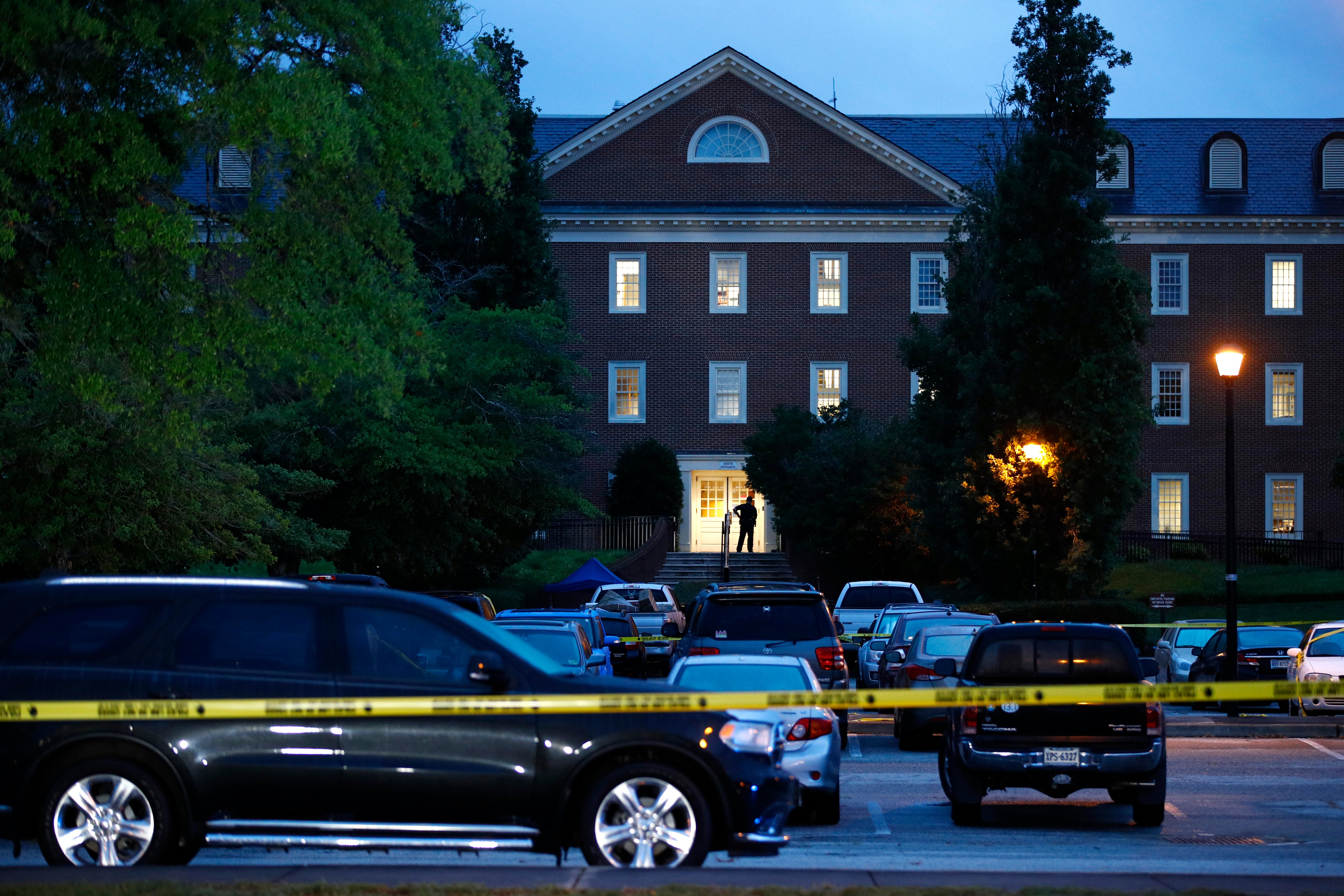FBI: Perceived grievances drove Virginia Beach mass shooter
The FBI says a city engineer who fatally shot 12 people in a Virginia Beach municipal building in 2019 was motivated by "perceived workplace grievances” that “he fixated on for years.”

Your support helps us to tell the story
From reproductive rights to climate change to Big Tech, The Independent is on the ground when the story is developing. Whether it's investigating the financials of Elon Musk's pro-Trump PAC or producing our latest documentary, 'The A Word', which shines a light on the American women fighting for reproductive rights, we know how important it is to parse out the facts from the messaging.
At such a critical moment in US history, we need reporters on the ground. Your donation allows us to keep sending journalists to speak to both sides of the story.
The Independent is trusted by Americans across the entire political spectrum. And unlike many other quality news outlets, we choose not to lock Americans out of our reporting and analysis with paywalls. We believe quality journalism should be available to everyone, paid for by those who can afford it.
Your support makes all the difference.A city engineer who fatally shot 12 people in a Virginia Beach municipal building in 2019 “was motivated by perceived workplace grievances” that “he fixated on for years,” according to findings released by the FBI on Wednesday.
The investigation, conducted by the FBI’s Behavioral Analysis Unit, found that DeWayne Craddock “struggled with how he perceived his own work performance and how others at work viewed him.”
“The shooter’s inflated sense of self-importance contributed to this conflict and led him to believe he was unjustly and repeatedly criticized and slighted,” the FBI said in a news release. “Violence was viewed by the shooter as a way to reconcile this conflict and restore his perverted view of justice.”
But the FBI cautioned that no person or group was in a position to “see the confluence of behaviors that may have forewarned the attack” because Craddock had purposely isolated himself and disengaged from his relationships.
The agency also said that Craddock suffered from significant mental health stressors, although they “alone cannot explain the Virginia Beach attack.”
“It is important to note that only the shooter knew the real reason why he committed this horrific act of violence; however, at this time, the FBI is confident, based on evidence collected, that the above assessment is accurate,” the FBI stated.
The FBI's findings appear to go a step further than the investigation that was conducted by the city, which said in March that it could not determine a motive for the mass shooting.
“Despite exhaustive investigative work and in spite of unsubstantiated rumors and accusations, it appears we may never know why he committed this heinous act,” the city's report concluded.
Craddock had worked in the city’s public utilities department for more than nine years. He killed 11 co-workers and a contractor who was in the building at the time getting a permit. Four others were seriously wounded and a police officer responding to the shooting received a bullet in his tactical vest but escaped serious injury. Craddock was killed in a shootout with police.
The city's report had said Craddock's life began to change around 2017. He was getting a divorce and started to have performance issues at work. In 2018, he received a written reprimand for poor performance, failed to meet expectations on an evaluation and didn’t get a merit raise.
“At times, the suspect referenced the belief he was being tasked with work outside of his pay grade,” the city's report said. “This concern was specifically addressed by his supervisor in 2018. The suspect was told that he had been making improvements and was given encouragement.”
Leaders in the department said the shooter would have met job performance standards in his 2019 evaluation, the report said.
The city's report said investigators didn't uncover "any indications of violent tendencies or acts of violence committed by the suspect prior to May 31, 2019.”
Some of the victims’ families have long blamed what they say was a toxic workplace environment and a failure by supervisors to recognize warning signs.
Jason Nixon, whose wife, Kate Nixon, was killed, told The Associated Press in March that the shooter was upset because he was having trouble at work and lost out on a promotion.
“Human resources dropped the ball on policies, protocol and procedures,” Nixon said. “My wife warned them all the time that there’s something wrong with this guy.”
The rampage in Virginia Beach had been the latest in a string of high-profile mass shootings, happening in between the high school killings in Parkland, Florida, that left 17 people dead and the Walmart massacre in El Paso, Texas, that left 23 dead.
Some of the victims’ family members have felt that the tragedy was effectively forgotten after the national spotlight moved on to other mass killings. Then the coronavirus pandemic arrived.